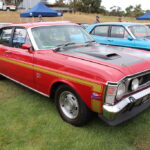Do Diesel Cars Need to Be Driven Regularly? [Solved]
Gasoline cars are very popular among the masses. So popular that diesel car sales are declining while petrol car sales keep climbing. Many people may know about the advantages of diesel vehicles but are not sure if it’s for them.
Diesel vehicles have some advantages over petrol counterparts and to the right person, it could be the perfect vehicle.
Do Diesel Cars Need to Be Driven Regularly?
Modern Diesel cars do not need to be driven regularly. They can be used whenever they need to and parked for a long time without worry. But older diesel cars do need to be driven more often than gas cars.
Modern diesel cars do not need constant attention the way older diesel cars do. Older cars, in general, require a bit more attention than newer ones. Old petrol and diesel cars need to be taken care of and driven more often than newer cars to keep parts running smoothly.
Modern diesel cars just like their petrol variants can be used at any time without worry.
Also read: Why are Diesel Oil Changes so Expensive? (Explained)
How Many Miles Should You Drive Your Diesel per Month?
There is no set mileage, but above 1,600 miles a month is a good number for diesel engines. This is because the biggest advantage of diesel cars which is fuel economy is best felt at longer distances.
If you plan to make commutes or drive less than 10,000 miles a year, then a petrol car will be the better option. Modern petrol cars have been getting better fuel economy, but the diesel cars are still better, especially for long-distance/highway driving.
A drive around town or just a few thousand miles per year, and it will have almost no advantage over petrol cars.
Is it Better to Drive Your Diesel on Shorter or Longer Distances?
Diesel cars are better driven at longer distances than shorter ones. Shorter distances are fine with no harm to the engine, but longer distances are where the fuel economy benefits of the diesel outweigh petrol models.
Longer distance driving benefits the usage of diesel cars better. Diesel cars use 20-25% less fuel than petrol engines. The Diesel Particulate Filters (DPF) also work better after long distances.
The DPF is a legal requirement for all diesel vehicles to help lower emissions. They work better after long-distance when they’ve become hot. Shorter distances do not allow them to get up to temperature and thus can’t work very well. Diesel car city driving can also clog up your DPF over time, making them ineffective and unable to help lower emissions. Although diesel cars generally emit lower CO2 than petrol cars, older diesel cars do emit more CO2.
Trending Video: How to Easily Bring Back to Life any Old Car Battery and Save Tons of Money (click to watch)
Modified diesel cars are particularly bad for city driving, specifically exhaust modifications. Coal rolling is a byproduct of these modified exhausts. This is when drivers floor their vehicles to produce thick black smoke, which in city areas is bad for general health. But the effects are felt less on highways.
Should You Drive Your Diesel Car Everyday?
No, you don’t need to drive your diesel car every day. Manufacturers have built these engines knowing they won’t be driven every day. Diesel cars can be parked for a long time without worries.
When cars are built, they are built to last. Things like running time and downtime are part of the rigorous testing for these engines. Making sure they will work whether they’ve been used yesterday or a week ago is essential. Expect your vehicle to start and perform optimally every time as long as everything is fine.
CRDI (Common Rail Direct Injection) technology has been applied to modern diesel engines, which does not require them to run daily. These also help fuel economy and lower emissions.
What are the Consequences of not Driving Your Diesel Enough?
There are no major consequences of not driving your diesel car enough. But driving them occasionally and at short distances isn’t very good. When driven, they need to be driven for long distances to help them perform better for a long time.
Diesel cars tend to perform best over long distances as opposed to short commutes around town. You may not drive them as much as your petrol cars but when you do, long distances are the best. Fuel economy is better at such distances but the main concern is engine components.
Diesel engines are heavy and made of durable parts. Always stopping and going, turning on and off the engine when it’s cold, puts stress on these parts. They need to rotate properly and get up to temperature quickly to work well. City driving doesn’t help with this.
Another concern is with the DPF (Diesel Particulate Filters). As mentioned before, they need heat to work properly and in this scenario, they won’t be heated quickly to perform their task.
Also read: Do Hybrids Last Longer than Gas and Diesel Cars?
What’s the Best Way to Drive a Diesel Car?
The best drive a diesel car is similar to how you would drive a petrol car. Allow the engine to get up to temperature before revving or flooring the accelerator. The proper temperature in all parts of the vehicle will make things run properly.
Before you take your car out for a drive in the morning, you should leave it running for a few minutes before driving away. This will make sure the engine starts getting some temperature in it and the oil and fluids have had time to circulate. The DPF (Diesel Particulate Filter) would have had time to warm up a bit. None of these parts will be at operating temperature yet, but they will be ready for movement.
Here are a few tips to help you drive your diesel better:
- After starting, never over-rev the engine, as it’s not up to temperature yet. Doing this will cause unnecessary wear and stress to mechanical components like the turbo.
- Diesel cars also have a lot of torque, so there will be no need to keep the car at high RPMs. Don’t keep them too low for too long, either. Diesel cars produce soot caught by the DPF and revving the engine once in a while helps get rid of the accumulated soot.
- Never use the half clutch method in stop-and-go traffic. This applies to all cars, but the torque produced by diesel engines will burn your clutch quickly.
- No need to change gears as much. They may not rev too high, but the torque available is enough to get you moving at almost any speed. If you drive an automatic, then this won’t be a problem.
- Never turn off the engine abruptly. Allow your car to run loosely for at least 30 seconds after coming to a stop. When you stop, the engine revs are still a bit high, this loose time allows the torquey engine to wind down to idle speed. Then you can shut it off.
- Oil changes are very important, especially in diesel engines. This is because of the amount of torque always available and heavy, durable materials. They need adequate oil to work well, low oil level is not ideal for an engine. Refer to your owner’s manual for oil recommended oil changes and servicing.
Also read: Symptoms of a Loose Strut Nut (+How to Fix it)
How to Tell if a Diesel Car is for You?
If you tow a lot and cover a lot of miles, then a diesel car is for you. The advantage of low down torque can help with easy towing, highway passing, and better fuel economy. If you drive around the city and short distances, then the gasoline engine option is better.
For someone who drives a lot of miles and covers long distances, diesel vehicles are great. Petrol may be a bit cheaper, but the fuel economy of a diesel car is better.
Highway driving includes covering a lot of distance, the low down torque of a diesel car means it doesn’t have to rev very high. The engine works less to produce the same overtaking power than a petrol engine.
Towing is another reason to get a diesel-powered vehicle. Diesel trucks can tow much more easily than petrol-powered cars and still manage to get better fuel economy. The extra torque allows the vehicle to pull heavy loads easier and still last longer.
So if you drive a lot and tow a fair bit, then a diesel engine is for you. But if you drive in the city and short distances with no reason to tow then the petrol car is for you.
In summary:
Diesel Pros:
Long-distance fuel economy.
Torque from low revs.
Better for longer journeys and towing.
Low CO2 emissions.
Diesel Cons:
Harmful particulate pollution.
Does not like short trips.
Fuel is a bit more expensive.
Necessary Routine Maintenance.






